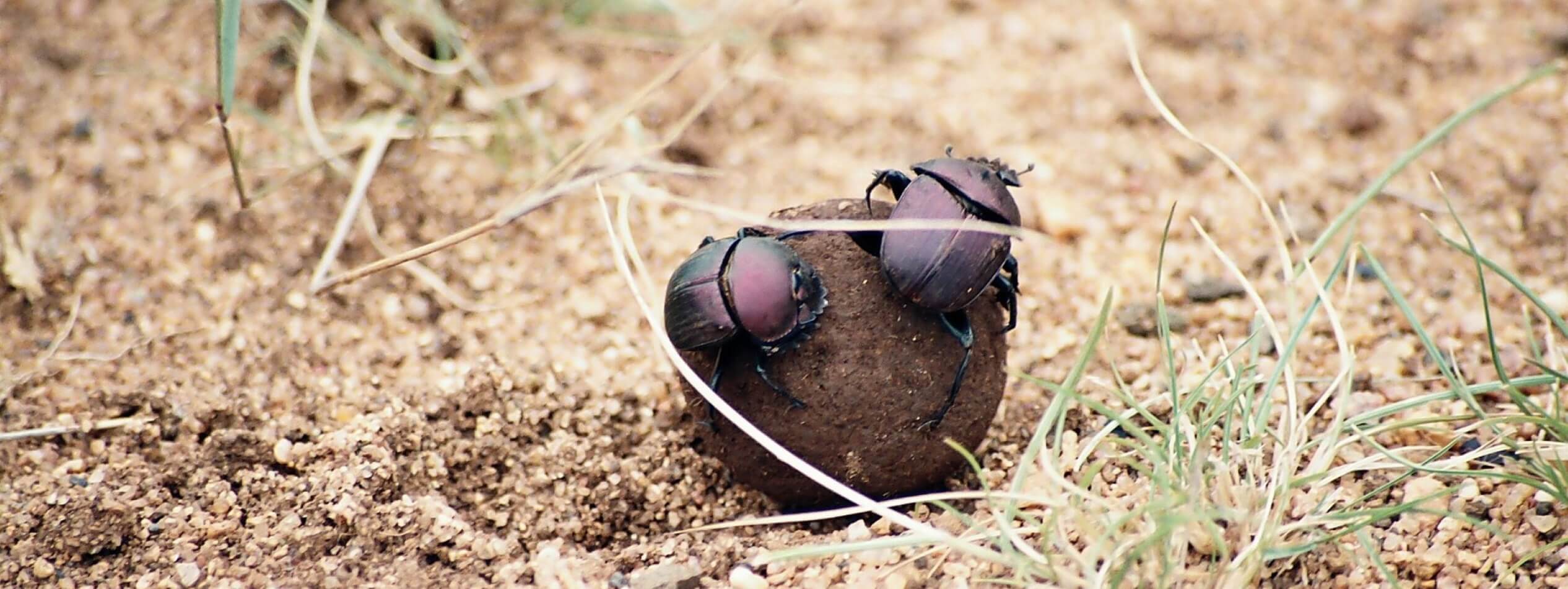Dung beetles are amazing insects. They should be playing a crucial role on all livestock farms, but they are often absent. This is a tragedy, and something any farmer that is interested in sustainable, regenerative farming should be looking to fix.
Benefits of dung beetles
I recently read an article by a farmer in the USA who has become very passionate about dung beetles. He discusses the main benefits of dung beetles, which I will summarise for you:
- Fly control: Dung beetles’ main role is to burry large quantities of dung below the ground, thus moving fly eggs and larvae below the ground, breaking their lifecycle. The beetles also have mechanisms to stop flies from laying eggs in their dung balls, and some dung beetle larva prey on the larvae of flies.
“It is estimated that a single dung beetle will bury 250 times its own weight in dung per day” Spencer Smith
- Improved soil fertility: Dung beetles seek out the highest nitrogen parts of the dung, burying it in the soil among the plant roots. The larvae only consume about 50% of the buried dung, therefore leaving the rest of this nutrient-dense dung to be used by the plants.
- Soil aeration and water management: The tunneling action of dung beetles create holes that aerate the soil and allow for water infiltration and movement through the soil profile. Not only that, but the dung buried by the beetles also help to absorb and hold moisture in the soil.
Promoting dung beetles
The biggest negative impact on dung beetles is the worming of livestock. There is residue from the medication in the dung that kills dung beetle larvae when they consume the dung. If there is a necessity to treat cattle for worms, this should be done at a time of year when dung beetles are dormant.
Adaptive, high density, rotational grazing management also promotes dung beetles. This is due to dense deposits of dung providing ample food and allowing breeding pairs to easily find each other. These conditions allow dung beetles to breed and thrive.
Herbicides and fungicides may have a negative impact on dung beetles, although this is largely unknown in terms of the impact of specific products. Insecticides will have a negative impact on dung beetles. Chemical fertilisers also negatively impact the health of the soil ecosystem, which can have a negative knock-on effect on dung beetles, which is again, largely unknown. What we have observed is that on farms where chemical inputs are limited, dung beetles return to pastures.
Dung beetles are undervalued
I believe that dung beetles have been greatly undervalued by farmers. I know some farmers who get very excited when they see dung beetles in their pastures. This is great, but I wish I could say it was the majority. It is only a small minority. Dung beetles have a major role to play in restoring and maintaining soil health. They are part of nature’s natural process of returning nutrients from grazing animals to the soil so that they can be used to grow more fodder for the grazing animals. This is the type of nutrient cycling that leads to more sustainable farming, and it replaces costly, environmentally degrading fertilisers. Further, the pest control resulting from dung beetles also replaces the need for costly and environmentally degrading pesticides.
Challenge to farmers
Do you see dung beetles in your pastures? If not, what can you do to encourage them to come back? If yes, what can you do to further promote their population?
Source
- Spencer Smith. How to establish dung beetles in pastures. Accessed 10 November 2020.
- A carbon footprint assessment for pasture-based dairy farming systems in South Africa - 2024-02-07
- What progress have farms participating with Trace & Save made over the past 10 years? - 2023-09-06
- Carbon footprint reduction over time: Lessons from pasture-based dairy farms in South Africa - 2023-09-04

